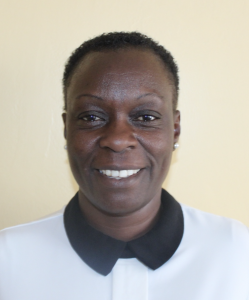Shamberere Primary School is located in Mahira, in Kakamega County. It was established in 1940 under the sponsorship of the Friends Church in collaboration with the local community. It is a government school managed by the Board of Management and the Parents Teachers Association.
The population of the primary school has skyrocketed to nearly 1,000 students. From this school, other institutions (Shamberere Boys High School and Shamberere Technical Training Institute) have been established to continue student's educations.
Students must bring water from their respective homes every day for the school. It is drawn from various sources that are often unsafe, and waterborne diseases like diarrhea and typhoid are prevalent. This affects students' health, leading to absenteeism and a decline in the academic performance of the school.
"I have suffered in this school. Sometimes I have a lot of work to do, and you are told to go and look for water. It makes us not perform well in class," said Meldrine, a 14-year-old female student.
When students need to collect water during school, they must walk quite a distance to the local spring or a nearby passing stream. The road they cross in front of the school is very busy and dangerous due to tractors carrying sugarcane to the West Kenya Sugar Company factory as well as motorbikes.
"Water is life. Without water, things will not move. I have a big student population, and the water brought from their homes is not enough during the daytime. Pupils are forced to leave classes to go and look for water, which interferes with the lessons. Many accidents occur when they cross the road," said Moses Juma, headteacher.
What We Can Do:
New Well
We conducted a hydrogeological survey at this school and the results indicated the water table beneath it is an ideal candidate for a borehole well. Due to a borehole well's unique ability to tap into a safe, year-round water column, it will be poised to serve all of the water needs for this school's large population, even through the dry months.
The school will help collect the needed construction materials such as sand, rocks, and water for mixing cement. They will also provide housing and meals for the work team, in addition to providing local laborers. We will complement their materials by providing an expert team of artisans and drilling professionals, tools, hardware, and the hand-pump. Once finished, water from the well will then be used by the school’s students and staff for drinking, handwashing, cooking, cleaning, and much more.
We and the school strongly believe that all of these components will work together to improve standards at this school, which will help lead to better student academic performance and will help unlock the opportunity for these students to live better, healthier lives.
Handwashing Stations
There is currently nowhere for students to wash their hands after using the latrines or before eating lunch, let alone the water to do so.
The student health club will oversee the two new handwashing stations we will provide, and make sure they are kept clean and in working condition. The club leaders will fill the handwashing stations with water daily and make sure they are always supplied with a cleaning agent such as soap or ash.
VIP Latrines
Two triple-door latrine blocks will be constructed with local materials that the school will help gather. Three doors will serve the girls and three doors will serve the boys. All of these new latrines will have cement floors that are designed to be easy to use and to clean. And with a rain tank right on school property, there should be enough water to keep them clean.
Training on Health, Hygiene, COVID-19, and More
We will hold a one-day intensive training session with students, teachers, and parents. This training will cover a wide range of topics including COVID-19 symptoms, transmission routes, and prevention; personal and environmental hygiene; and the operation and maintenance of the rain tank, latrines, and handwashing stations. There will be a special emphasis on handwashing.
Our team of facilitators will use a variety of methods to train, including participatory hygiene and sanitation transformation, and asset-based community development. We will initiate a student health club, which will prepare students to lead other pupils into healthy habits at school and at home. We will also lead lectures, group discussions, and provide illustrative handouts to teach health topics and ways to promote good hygiene practices within the school including handwashing and water treatment. We will then conduct a series of follow-up trainings before transitioning to our regularly scheduled support visits throughout the year.

 Borehole Well and Hand Pump
Borehole Well and Hand Pump
 Rehabilitation Project
Rehabilitation Project



































